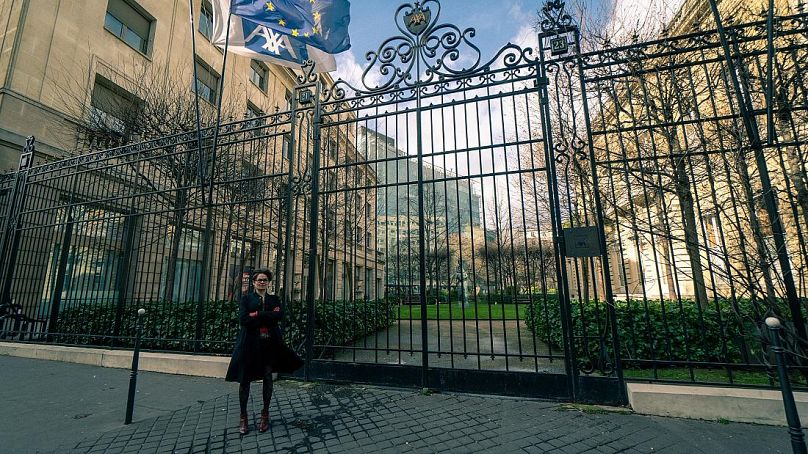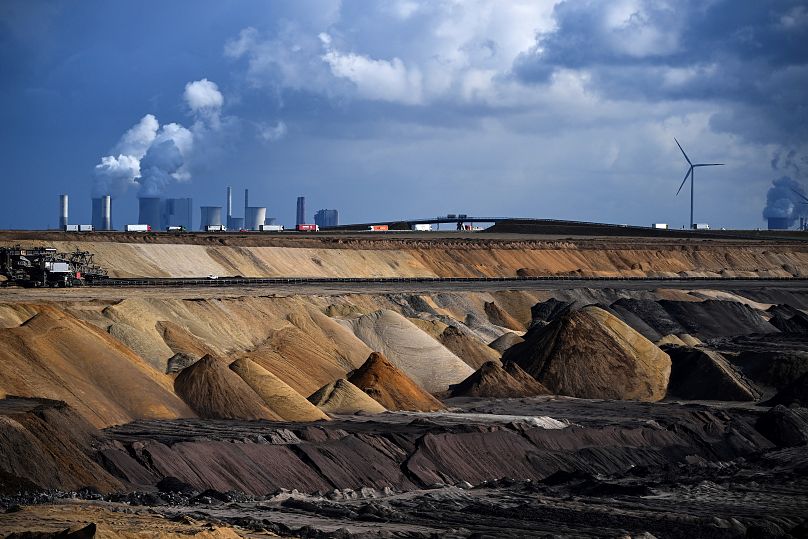Lucie Pinson followed the money to convince some of Europe's biggest financial institutes to take the climate crisis seriously.
Camille Khellaf is studying for an MA in Journalism at Falmouth University. Here she speaks to a campaigner persuading Europe’s financial institutes to stop investing in fossil fuels.
 ADVERTISEMENT
ADVERTISEMENT
 ADVERTISEMENT
ADVERTISEMENT
When world leaders at the G7 summit in Cornwall this June announced their plan to speed up the transition away from coal, one climate activist was already several steps ahead.
Lucie Pinson has persuaded some of Europe’s biggest financial institutions to pull out of coal investments. At first, they didn’t grasp the severity of the climate crisis.
‘It‘s not their priority,” Pinson says, “these institutions are not primarily designed to defend the planet.”
Now, she has pushed three powerful French banks and the AXA and SCOR insurance companies to end support for coal - a major blow to Europe’s fossil fuel sector.
Pinson had to learn the language of the marketplace, to convince them that financing coal was simply bad for business but time is running out to meet climate targets.
A fatal flaw
Awarded the renowned Goldman Environmental Prize last year, Pinson studied political science at the Sorbonne in Paris. She has no background in economics or finance but kept the conversation with these big institutions focused on what she saw as the fatal flaw in their corporate strategy.
It was clear to her that the insurance companies “were slowly killing the people they insured and were in it only for profit”.
Energy from coal is a major source of carbon emissions which cause global warming. Research by NGO Reclaim Finance shows Europe can only keep to a temperature increase of 1.5°C, as set out in the 2016 Paris Climate Agreement if it abandons coal-fired power by 2030 at the latest.
This wasn’t the main argument Pinson used, however. The latest research from Harvard University shows that fossil fuel air pollution caused the deaths of more than nine million people - 18 per cent of total global deaths in 2018.
According to this study, Europe has the most concentrated levels of fossil fuel-related air pollution and some of the highest rates of mortality.
Pinson shared this information with insurers, air pollution from coal plants was an immediate danger to health.
“They are the risk managers in our society, it’s up to them to protect us but at the same time, they insure an industry that threatens our future and causes thousands of premature deaths per year,” she explains.
Allianz and Generali were the two biggest coal insurers in Poland, selling life insurance across Europe.
“The pollution from Polish coal-fired power stations didn’t only affect Poles, but also Germans and Italians,” Pinson reported in January 2018 to the Unfriend Coal NGO coalition.
Dialogue and data
When insurance company AXA wanted to make a high-profile climate statement at French President Emmanuel Macron’s 2017 One Planet Summit, Pinson helped draft a new policy on insurance and investment in the coal sector.
Her strategy is not to wage war on finance, but rather to offer advice. It’s a carrot and stick approach, says Pinson. She suggests environmental policies to fit their business model but then doesn’t hesitate to hold them to account publicly.
“It is generally more constructive to work with organisations rather than go down the 'name and shame' route” agrees Sarah Brown, Senior Electricity Analyst at the independent climate and energy think tank Ember Climate.
“Collaboration and dialogue, combined with data-driven evidence, are more effective at achieving tangible and lasting change.”
For this to happen Pinson is only too aware that financial institutions have to follow through and deliver on environmental promises. They don’t always have the tools and data to measure results in this field, because it’s not part of their corporate culture.
“The financial world is completely de-politicised and dehumanized,” she says.
“It’s possible to have a career in the banking world without thinking for a single second about the impact of the activity of the institution for which you work, on the climate or on people.”
In 2020, Pinson founded Reclaim Finance, an NGO that campaigns to raise public awareness of how business impacts climate and social justice. At the same time, the team at the organisation have persuaded some of the world’s biggest private and public financiers to end funding for coal and fossil fuels.
Their success stories include names such as AXA, SCOR, BNP Paribas, the Norwegian Pension Fund and the European Investment Bank.
Checks and Balances
It’s a complex task to balance short-term social and economic welfare with longer-term environmental health. Workers and communities which depend on fossil fuels will be hit by the withdrawal of investment in the industry, and nations rich in hydrocarbon resources will be forced to reinvent themselves.
The Global Commission on the Geopolitics of Energy Transformation advised in 2019 that "a rapid shift away from fossil fuels could create a financial shock with significant consequences for the global economy".
But Sarah Brown says with good planning, this can be mitigated to ensure “all countries are able to move away from coal in a just, fair and timely manner.” Brown advocates policy initiatives to retrain and redeploy workers out of fossil fuel jobs and into renewable industries wherever feasible.
It’s an argument which isn’t hard to make, says energy strategist Didier Julienne, who writes for Le Monde.
“Hydrocarbon geology (as an energy source) has no future and will disappear from the collective memory,” he predicts.
Once fossil fuel companies accept this as inevitable, Julienne says they “should reinvest their immense skills and knowledge in a large-scale industrial alliance closely linked to the energy transition.”
It’s not over until it’s over
For now, the campaign for clean and sustainable finance is far from over, says Pinson. She reels off a list of international financial players - Intesa in Italy, Deutsche Bank in Germany and British banks such as HSBC or Barclays’ - all of whom still finance new coal projects around the world.
In June 2021, Reuters reported on research by the U.S. think-tank Global Energy Monitor signalling 432 new coal mining projects currently planned globally.
Pinson now has oil and gas in her sights too. She aims to persuade French financiers to leave sectors with the highest climate risk such as shale gas, oil sands, the Arctic and deep-water drilling.
Brimming with energy and convinced she can find a language business understands, Pinson is apparently undaunted by the task ahead of her. She’s not letting up the pressure and armed with the latest facts and figures, tweets round the clock, translating her message for a wider audience.
Spurred on by a sense of urgency, she says she has no choice but to win the argument.
‘I don’t dare to think of failure in what we’re doing,” says Pinson.
“It‘s our responsibility to make sure the blows that come are the least brutal possible. Every tenth of a degree of warming will have an impact on thousands of people."
This article is a part of a 2021 series between Euronews Green and Falmouth University.



















